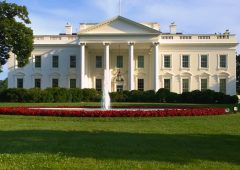Argentina Creates Unit That Will Use AI to Detect Future Crimes
04.08.2024 17:15 1 min. read Alexander Stefanov
Argentina has formed the Applied Artificial Intelligence for Security (UIAAS) unit to use AI to prevent crimes.
Led by the director of cybercrime and cyberspace and involving Argentina’s federal police, the unit will use machine learning to analyse historical crime data and predict future ones.
Highlights include identifying cyber threats through unusual patterns in computer networks, such as malware and phishing.
The unit will also deal with bomb disposal and improve communication between police and security teams. Another strategy is monitoring social media for potential indicators of crime.
The move follows a U.S. government investigation into OpenAI’s safety standards, in which Senate Democrats and an independent lawmaker questioned the company’s practices.
The United Nations General Assembly, backed by 123 countries, recently passed a resolution to ensure human rights, protect privacy and monitor AI-related risks.
-
1
Polygon Breaks from Decentralization as Sandeep Nailwal Assumes Full Control
11.06.2025 20:00 2 min. read -
2
Nvidia CEO Urges UK to Invest in AI Infrastructure or Risk Falling Behind
10.06.2025 9:00 1 min. read -
3
KuCoin Plants Its Flag in Bangkok With a Licensed Thai Exchange
14.06.2025 13:00 1 min. read -
4
Why Gold Could Be the Smart Play Amidst US Debt Surge
11.06.2025 11:00 1 min. read -
5
NFTs Quietly Evolve Into Core Digital Infrastructure
13.06.2025 17:00 2 min. read
Coinbase Surges 43% in June, Tops S&P 500 After Regulatory Wins and Partnerships
Coinbase has emerged as the best-performing stock in the S&P 500 for June, climbing 43% amid a surge of bullish momentum driven by regulatory clarity, product innovation, and deeper institutional interest in crypto.
What Brian Armstrong’s New Stats Reveal About Institutional Crypto Growth
Coinbase CEO Brian Armstrong has spotlighted a significant acceleration in institutional crypto adoption, driven largely by the surging popularity of exchange-traded funds and increased use of Coinbase Prime among major corporations.
Whales Buy the Dip as Retail Panics: This Week in Crypto
The latest market turbulence, fueled by geopolitical tensions and investor fear, offered a textbook case of how sentiment swings and whale behavior shape crypto price action.
What Will Happen With the Stock Market if Trump Reshapes the Fed?
Jefferies chief market strategist David Zervos believes an upcoming power shift at the Federal Reserve could benefit U.S. equity markets.
-
1
Polygon Breaks from Decentralization as Sandeep Nailwal Assumes Full Control
11.06.2025 20:00 2 min. read -
2
Nvidia CEO Urges UK to Invest in AI Infrastructure or Risk Falling Behind
10.06.2025 9:00 1 min. read -
3
KuCoin Plants Its Flag in Bangkok With a Licensed Thai Exchange
14.06.2025 13:00 1 min. read -
4
Why Gold Could Be the Smart Play Amidst US Debt Surge
11.06.2025 11:00 1 min. read -
5
NFTs Quietly Evolve Into Core Digital Infrastructure
13.06.2025 17:00 2 min. read


